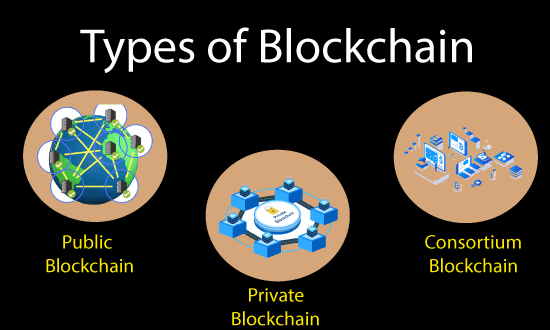When you hear the word blockchain, what do you think of? For many people, it’s a cryptocurrency like Bitcoin. However, the reality is that there are thousands of different uses for it. This is thanks to the many different types of blockchain networks that make this type of online ledger practical for a variety of industries.
But, exactly what are the different types of blockchain networks that exist today? If you want to know the answer to this question, then you’re in the right place. In this article, we’ll give you a quick breakdown of blockchain networks. Let’s get started!
Contents
Public Blockchain Networks
Public blockchains are by their nature completely decentralized. That means that anyone with a node in the blockchain has equal rights to interact with it.
Interacting with it can include accessing it, adding in new blocks of data, or validating some existing data. Public networks are one of the most popular types of blockchains because they’re related to cryptocurrency.
So, when you say, buy Dogecoin, you’re interacting with a public ledger that thousands, or even millions, of other individuals, have access to. These public networks work through nodes engagement in mining.
Mining occurs when nodes solve cryptographic equations on the network in exchanges with new blocks and a small amount of cryptocurrency.
Private Blockchain Networks
Unlike public blockchain networks, which are open to the public, private blockchain networks are managed by a single organization. The single entity gets to determine who can be a node and who can’t be.
Also, not all nodes are created equally. Some have more rights or access than others. In this way, private blockchains are only partially decentralized.
These types of networks are ideal for business-to-business purposes. Unfortunately, they’re also more susceptible to potential fraud than public networks.
Consortium Blockchain Network
Like private blockchain networks, consortiums are also permission-based. The difference is that instead of being run by one single entity, they’re instead run by a group of them.
This has the benefit of making them more decentralized. The problem is corporations between all of the entities can present something of a logistical problem.
Hybrid Blockchain Network
- The final form of distributed ledger technology is the hybrid blockchain network. As the name suggests, these are a mix of public and private.
- It has one entity controlling it, like a private network. But, it also has oversight features that are performed by a public blockchain.
Want More Content? Keep Reading
We hope this article helped you learn about the different types of blockchain networks. Whether it’s for voting or automated accounting, there are truly no limits to what blockchain tech can be applied.
That means that we can expect to hear about it more often as it continues to advance. Do you not want this article to end? We don’t blame you. Luckily, there are hundreds more that you can check out by continuing to explore our site. So, get started!

